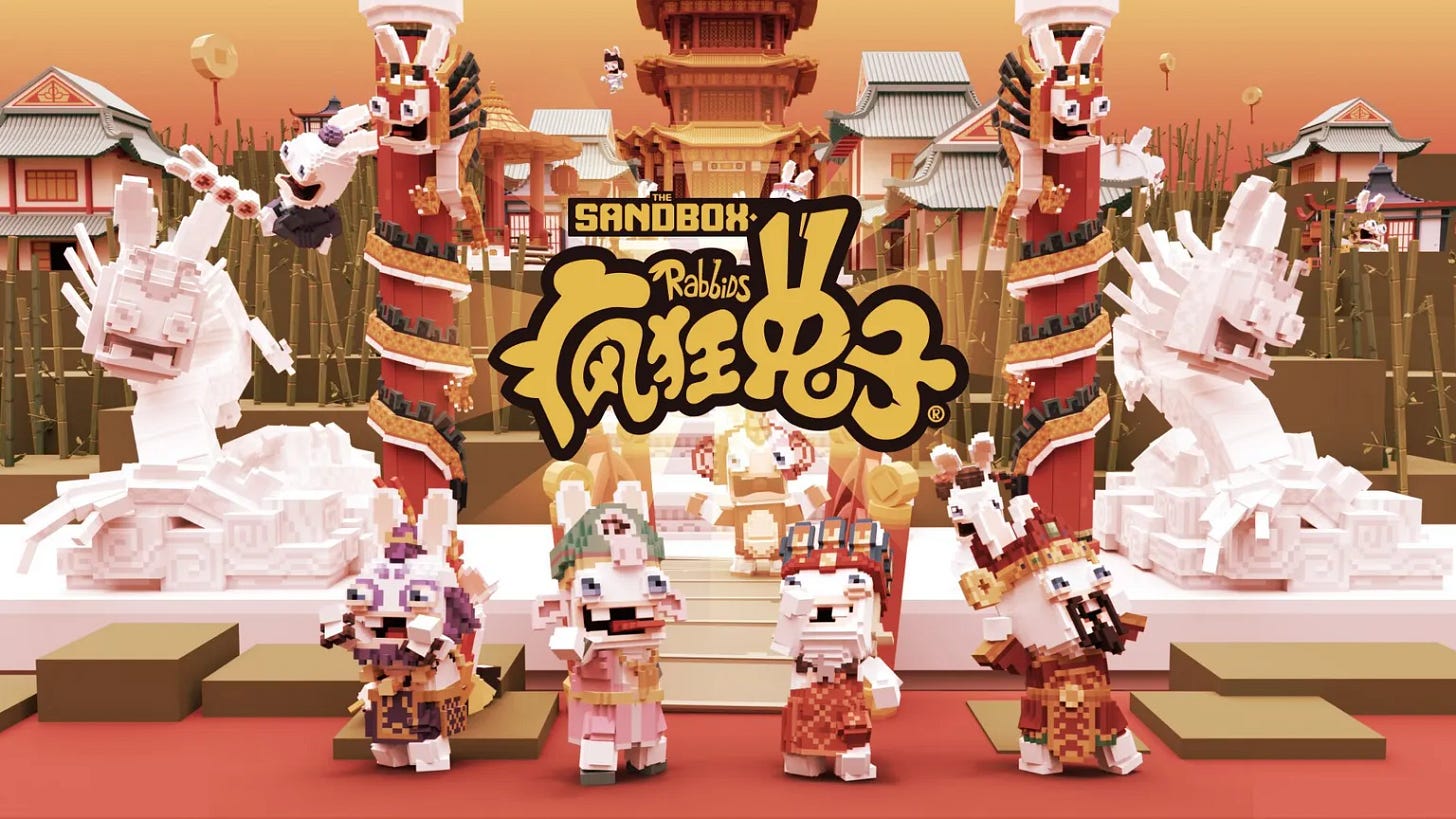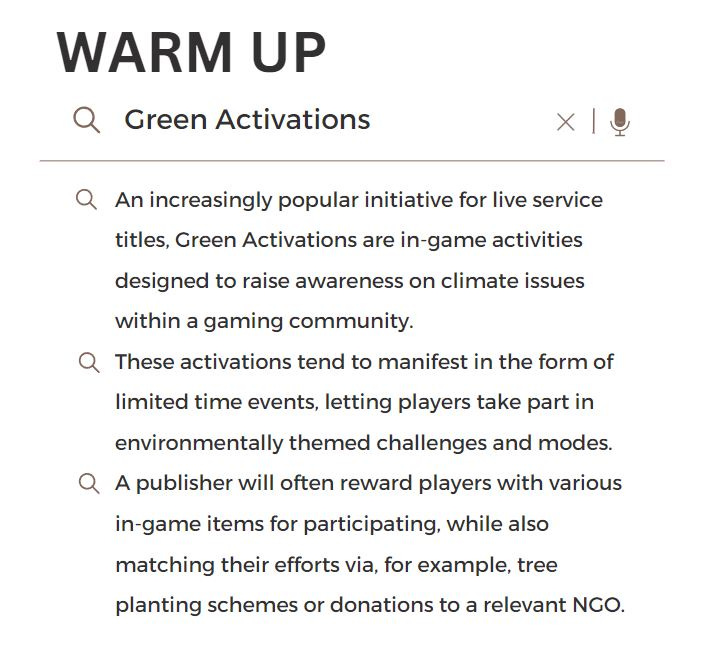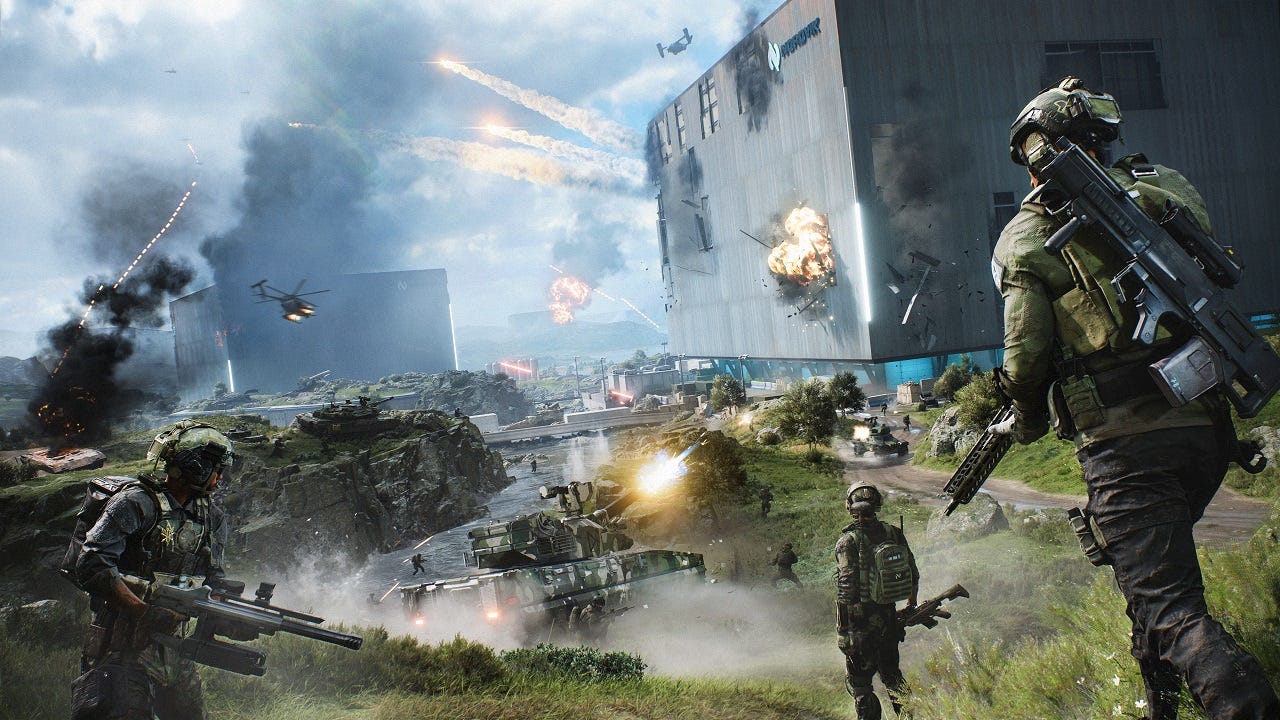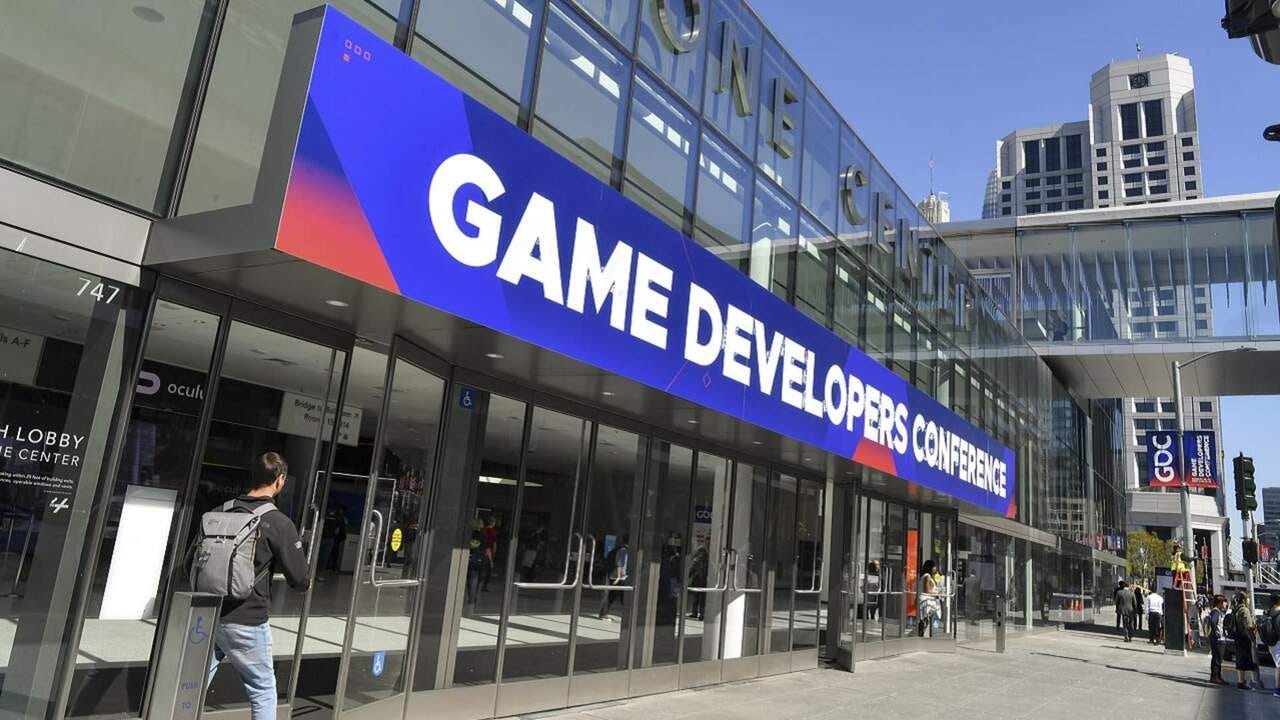Rabbids NFTs? Bwaaargh humbug!
Your latest digest of video game and climate change news from the past two weeks.
Welcome to the latest edition of Play Anthropocene!
Today is Tuesday, March 7th, and we’re covering the latest developments in the world of video games and climate change. Happy reading!
Don’t let the Quartz fiasco fool you, Ubisoft still has its fingers in the NFT pie
Ubisoft may have been publicly shamed into walking back on plans for Quartz, its much-derided video game NFT marketplace, last year, but that hasn’t stopped the publisher from expanding into the blockchain space elsewhere, albeit at a frequency that may have slipped under many a player’s radar.
Ubisoft’s latest efforts involve non-fungible tokens based around its Rabbids IP, which are being added to Ethereum metaverse game The Sandbox, allowing players to run around as personalised avatars of the popular spin-off characters from the Rayman franchise. We’ve talked about the problematic carbon emissions footprint of NFTs on this newsletter in the past, so hopefully I don’t need to go into detail on that again, but Ubisoft’s continued push for them is worth its own, brief moment of consideration.
The publisher has made a big deal about its own environmental commitments and, to its credit, has been one of the most active partners in The United Nations’ Playing for the Planet initiative in setting up “Green Activations” across a number its games.
A key pillar of Ubisoft’s climate action plan is also identified as “Restraint”, described on its webpage as the aim to “improve behaviours and habits to be more sustainable”.
Yet Ubisoft’s ongoing expansion into blockchain, crypto, and the NFT market is anything but restrained, and threatens to seriously undermine the publisher’s efforts to dial down its carbon footprint. This tension between words and actions around the environment is a recurring theme in the games industry (and indeed many other sectors), where a company makes a big, greenwash-y song and dance over its sustainability measures, yet continues to ignore some of the worst environmental offences in its own backyard.
So, with regards to Ubisoft, what’s the answer? Well, firstly, we can abstain from throwing money towards any of its efforts here; the less demand there is for this kind of thing, the less likely that game publishers like Ubisoft are going to keep investing in it. Second, we know from the Quartz saga that Ubisoft does pay attention to internet feedback when it matters, so perhaps it’s a case of the publisher’s community and fanbase letting it know that, once again, video game NFTs are unwelcome additions to its portfolio.
At the moment, Ubisoft’s existing operations in this area are being kept low profile, targeting specific audiences rather than being marketed across the publisher’s main channels. If enough players start catching on, and let the company know that they’re catching on, perhaps another much needed Ubi U-turn could be on the cards. Rayman’s legacy deserves better than this, after all.
Battlefield 2042 continues to treat climate chaos as background noise to war
Battlefield 2042 goes free for PS Plus subscribers on PS4/PS5 today, hot on the heels of DICE launching the fourth season in its multiplayer FPS sequel last week. This presents a good opportunity to check back in on the problematic subtext behind Battlefield 2042, which, if you didn’t already know, is set in a climate-wrecked future where refugee soldiers (referred to here as “No-Pats”) fight over patches of land afflicted by various environmental disasters.
During the game’s launch, DICE developers repeatedly stated that this backdrop was selected not as a political statement, nor even much of a thematic one, but designed primarily for gameplay logic, giving the studio the context it needed to create emergent, dynamic sandboxes for large-scale warfare.
While the game has come a long way from its rocky launch, that surface-level treatment of the climate emergency remains firmly in place, as evidenced by the release of its new map, Flashpoint. Set in the northern desert of South Africa, the map features an abandoned development centre situated in a “once thriving biodiversity hotspot”, but that’s about as far as the scene-setting goes.
“The reason we decided to go down this route is so we could create a narrative with this world that we could create through the eyes of the No-Pats. We wanted to get more spectacle in there, and more massive events happening. The setting fits that perfectly. It fits that scale, and it gives us reasons to go all over the world... It’s for gameplay reasons across the board.”
Battlefield 2042 Design Director, Daniel Berlin (IGN, 2021)
This gets to the heart of the problem with Battlefield 2042’s approach to climate fiction. The issue is not that DICE decided to use climate change as the basis for its game, but rather has essentially exploited the issue by hollowing it out into merely an aesthetic choice. We’re at a stage in the Anthropocene where presenting climate change with this kind of insouciance is tasteless at best, and actively dangerous at worst, trivialising the biggest issue of our time in front of audiences around the world.
Thankfully, a growing number of indie games are leading by example in handling the climate emergency with a appropriate level of care and consideration, but many big budget titles like Battlefield 2042 (i.e. which hold the most reach, and can therefore influence perceptions across the largest audience) are still falling too far short in this area.
Battlefield 2042 is winning back players for the improvements that it continues to make to its gameplay and multiplayer design, and that’s great; I’ll be giving it another go for myself this week. But should the game prove popular enough to ever warrant a direct sequel, DICE ought to seriously reconsider the responsibility it holds in dealing with such weighty subject matter, and the harmful perceptions that it can communicate when presenting the climate crisis as mere interchangeable window dressing for war.
GDC 2023 schedule reveals an industry grappling with its purpose and future in a warming world
The 2023 Game Developers Conference takes place in San Francisco from March 20 - 24 this month, and a number of the talks and workshops featured on its schedule reveal how climate and the environment is continuing to shift up the industry’s agenda.
For those attending this year, here’s the links - or at least the one I’ve found so far - for all of the environment-focused sessions that are currently scheduled throughout the four day event:
Seven Steps that Made Halo Infinite More Energy Efficient and How Your Studio Can Do It Too
Climate Crisis Workshop: Use Your Game Developer Superpowers to Fight
Game Developers Building a Climate Resilient Industry Roundtable (Presented by the IDGA)
How Xbox, 343i, Ubisoft and Epic are Utilizing Eco-friendly Code Without Impacting Gameplay Fidelity
Taken together, these sessions encompass some pretty juicy and challenging subject matter, covering sustainable game development, interactive eco-messaging, industry-wide adaption to the climate crisis, and more.
It’s an encouraging signal that developers, publishers, and other stakeholders are starting to more proactively engage with climate from an industry perspective, leaning into what are undoubtedly some uncomfortable (and exciting) questions about their role and responsibilities in the global effort to address it.
Plus, it’s great to see bodies like the International Game Developers Association Climate Special Interest Group (IDGA), which has a vision to see a grassroots climate council operating within every major game company across the industry, being involved in some of these key conservations - more of this, please! To thread this back in with our previous story, check out this fantastic resource the group has put together outlining the environmental and social impact of cryptocurrency, NFTs, and the blockchain.
I’ll be following along with the online-accessible sessions where I can, so expect to see more GDC coverage in a future Play Anthropocene sometime next month!
Enjoyed this newsletter? Subscribe or spread the word about Play Anthropocene to others who might be interested, and if you have any feedback or questions, feel free to get in touch with me at PlayAnthropocene@gmail.com
Find me on Twitter: @alexavard95








